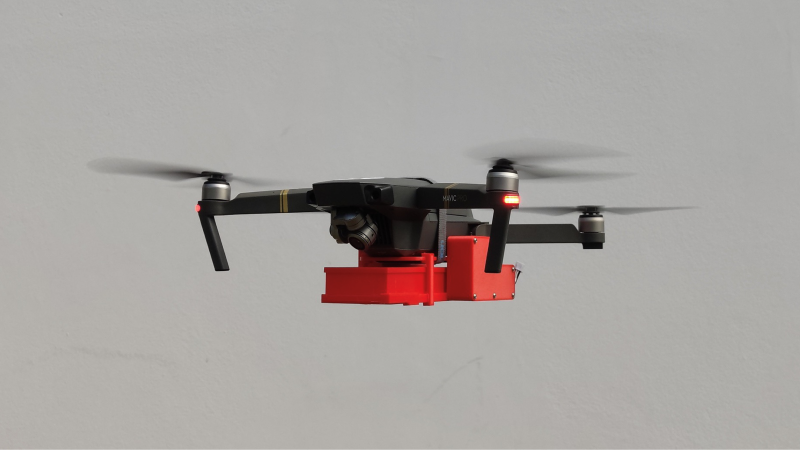

In its eight years of activity, the firm has performed more than 15,000 flights to release biopesticides over more than 1 million hectares of cropland (photo: BirdView)
The solution developed by the firm, with FAPESP’s support, permits controlled release of sterile males of Aedes aegypti in urban areas with the aim of reducing the population of these mosquitoes.
The solution developed by the firm, with FAPESP’s support, permits controlled release of sterile males of Aedes aegypti in urban areas with the aim of reducing the population of these mosquitoes.

In its eight years of activity, the firm has performed more than 15,000 flights to release biopesticides over more than 1 million hectares of cropland (photo: BirdView)
By Guilherme Santos | Agência FAPESP – A technology originally designed for spraying crops with biological pest control products can be used in urban environments to reduce proliferation of insects that carry viruses harmful to humans, such as the mosquito Aedes aegypti, which transmits dengue, yellow fever, zika and chikungunya.
Developed by BirdView, a startup based in São Manuel (São Paulo state, Brazil), in collaboration with EMBRAPA Instrumentation, one of several decentralized units of the Brazilian Agricultural Research Corporation (EMBRAPA), the solution has aroused the interest of companies that produce sterile males of A. aegypti to help eradicate the diseases it transmits.
The project was supported by FAPESP’s Innovative Research in Small Business Program (PIPE).
“When we took part in the latest edition of the PIPE High-Tech Entrepreneurship Training Program [PIPE Entrepreneur], we identified a few companies that produce sterile males of A. aegypti and were interested in partnering with us to release their insects in urban areas,” said Ricardo Machado, a co-founder of the startup.
The technology, which the firm developed under the aegis of the FAPESP Research Program on Biodiversity Characterization, Conservation, Restoration and Sustainable Use (BIOTA), is a drone-mounted modular system that holds the insects in a special container and releases them in previously demarcated areas, minimizing damage and induced stress.
When used over farmland, the drone releases insects onto crops to combat agricultural pests that are their natural enemies. When used over urban areas, it releases sterile males of A. aegypti, which even when mating will not have offspring. Females of this species reproduce once in their entire lifetime. The solution will reduce local populations of A. aegypti, experts believe.
In the eight years since its inception, the firm has performed more than 15,000 flights to release biopesticides over more than 1 million hectares of cropland. Its clients include two major sugar and ethanol companies, São Martinho and São Manuel; and Suzano, the world’s largest paper pulp maker.
The project to release sterile male mosquitoes is still experimental, and the firm is looking to partner with breeders of these insects, who would be required to pay for the service. The cost and time taken by the intervention are being studied. “The solution can also be used in drone seeding for reforestation projects,” Machado said.
PIPE Entrepreneur
BirdView was one of 21 startups that took part in the 25th edition of PIPE Entrepreneur. The technical validation and business results they obtained during the 12-week course were presented at an event held in December at FAPESP.
One of the main aims of PIPE Entrepreneur is to build closer ties between academia and the market. According to program coordinator Cátia Favale, the participating startups need to validate their projects with models that are attractive to the market. “We want to convert efforts into business ventures. It’s a win-win, boosting tax revenue, job creation, income, and economic and social development,” she said.
“PIPE Entrepreneur is considered one of the leading business training programs in São Paulo, with highly qualified coordinators, mentoring, and a sound methodology,” said Anapatrícia Morales Vilha, a member of FAPESP’s Research for Innovation Adjunct Panel.
Republish
The Agency FAPESP licenses news via Creative Commons (CC-BY-NC-ND) so that they can be republished free of charge and in a simple way by other digital or printed vehicles. Agência FAPESP must be credited as the source of the content being republished and the name of the reporter (if any) must be attributed. Using the HMTL button below allows compliance with these rules, detailed in Digital Republishing Policy FAPESP.





